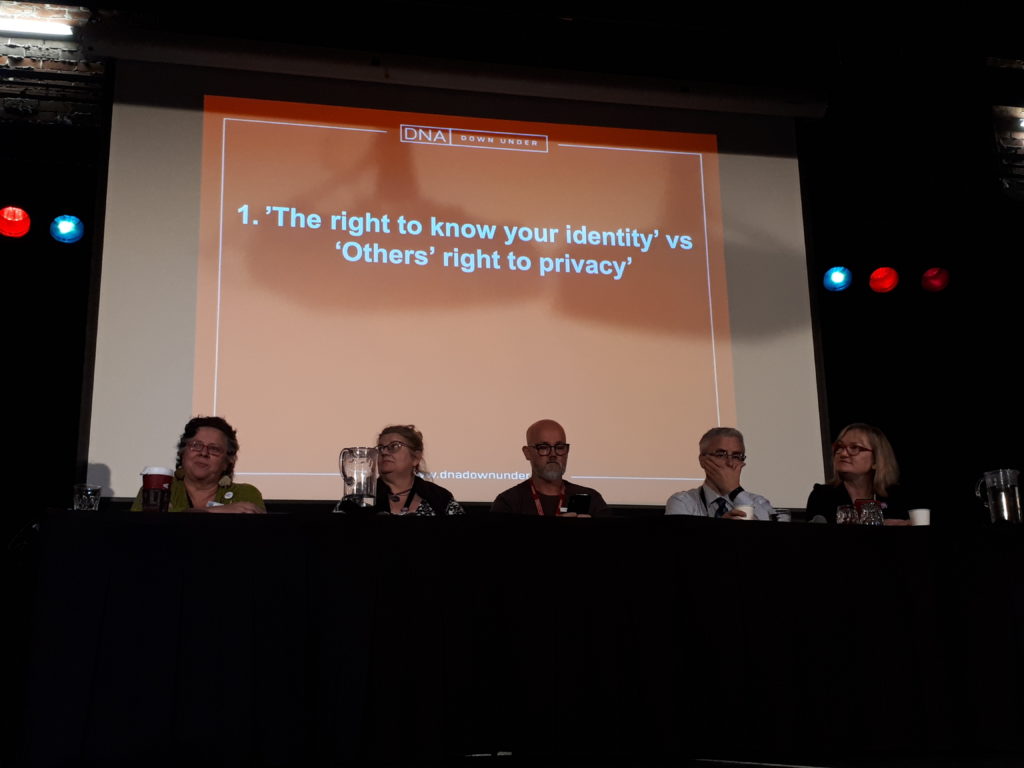
Day 2 of Unlock the Past’s DNA Down Under conference finished with a very thought-provoking Panel discussion on “what would you do” in the following situations:
- The right to “know your identity” vs other’s “right to privacy”.
- What should be included in “informed consent” advice when asking relatives to test?
- You ask “a family member” to do a DNA test and they do not show up as a relative to you.
- Someone shows up as a DNA match to you. You recognise your ancestor in common by the shared matches. This is not the person they list in their family tree.
- If a DNA test reveals a certain health predisposition, should you tell family? Does this change if it is a medical-grade genetic test rather than a genealogy test?
All extremely important scenarios that will affect many of us who look after not just our own, but other people’s test results.
As genealogists we must strive to not only be conscientious and well informed but also to pass on due care and, importantly, take the time to explain “unforeseen results” as well as what we will “do” with our family or client DNA tests as part of informed consent.
